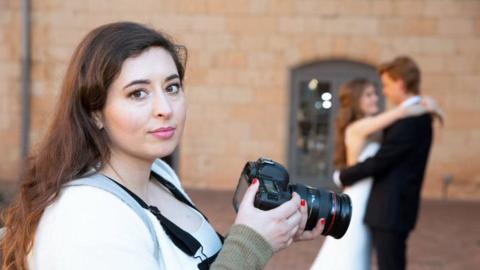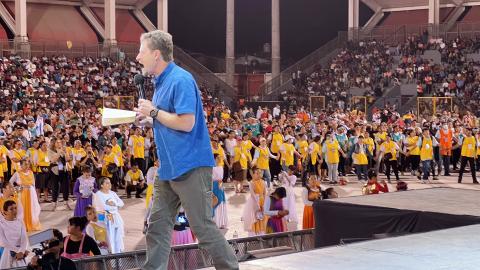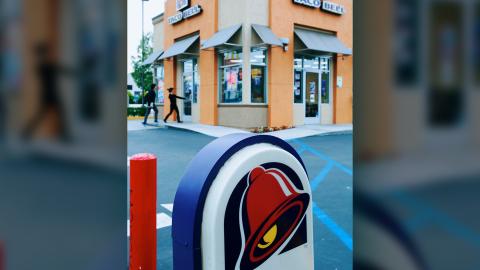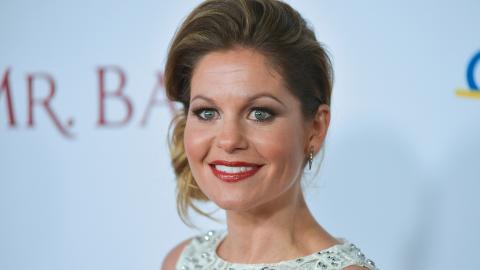
KY Christian Photog 'Excited to Move Forward' as Court Rules She Can't Be Forced to Work Same-Sex Weddings
A U.S. District Court sided with a Christian photographer and blogger Tuesday in her legal battle against a Louisville, Kentucky ordinance that would have required her to photograph same-sex weddings in violation of her First Amendment rights.
Alliance Defending Freedom (ADF) attorneys representing Chelsey Nelson challenged the so-called Fairness Ordinance that required her to create photographs and blogs promoting same-sex wedding ceremonies. As the district court recognized, the case Chelsey Nelson Photography v. Louisville-Jefferson County Metro Government is similar to the one now pending before the U.S. Supreme Court—303 Creative v. Elenis—involving Colorado graphic artist and website designer Lorie Smith.
As CBN News has previously reported, Nelson filed suit against the City of Louisville in November 2019 challenging the ordinance that threatened her with damages, attorneys fees, compliance reports, and court orders to force her to participate in and create photographs and blogs praising same-sex wedding ceremonies.

In 2020, U.S. District Judge Justin R. Walker issued an order allowing Nelson to turn down services for same-sex weddings without being penalized. Walker wrote that Louisville cannot enforce the Fairness Ordinance on Nelson without unconstitutionally "abridging her freedom of speech."
Second Federal Judge Upholds Nelson's Right to Free Speech
In his 44-page ruling on Tuesday, U.S. District Judge Benjamin Beaton said the government cannot force creative artists to articulate messages they don't support.
"Although Louisville may require restaurants and hotels and stores to provide services regardless of the proprietors' views or their customers' legal status, the government may not force singers or writers or photographers to articulate messages they don't support," Beaton wrote. "Because speech is categorically different under the federal Constitution, local laws must treat it differently, too. … However worthy and widely supported the government's commitment to equal access and respectful speech, these are concerns the First Amendment resolves in favor of the dissenting speaker."
In a statement, ADF Legal Counsel Bryan Neihart said the court's decision sends a clear message about free speech.
"Free speech is for everyone. No one should be forced to say something they don't believe," said Neihart. "We're pleased the court agreed that the city violated Chelsey's First Amendment rights. The court's decision sends a clear and necessary message to every Kentuckian—and American—that each of us is free to speak and work according to our deeply held beliefs. We are hopeful that the Supreme Court issues a similar decision when it addresses the same issue in 303 Creative."
Louisville's ordinance had also banned Nelson and her studio, Chelsey Nelson Photography, from publicly explaining on her studio's own website the religious reasons why she only celebrates wedding ceremonies between a man and a woman. In addition, ADF attorneys asked the U.S. District Court for the Western District of Kentucky to stop the city from threatening Nelson and violating her First Amendment rights by forcing her to create messages that go against her faith.
"{T}he Constitution does not permit governments to promote their perceptions of fairness by extinguishing or conditioning the free expression of opposing perceptions of the common good," Judge Beaton wrote. The court also explained that "{t}he Supreme Court, like Orwell, has long recognized the risk that compelled speech may 'turn the writer, and every other kind of artist as well, into a minor official, working on themes handed down from above.'"
The judge's decision did not overturn the Fairness Ordinance but ordered the city not to enforce it against Nelson or her business. The ruling also said the city cannot prohibit her from posting statements on her website explaining why she won't photograph same-sex weddings.
Nelson told WHAS-TV she was relieved after the court's ruling and is "excited to move forward."
"Now, I'm free to have statements on my website about the work that I'm able and willing to do and the messages that I can communicate," she said. "This is a win for every creative in the entire nation, whether or not they align with my beliefs or have very very different views from what I believe in. We're just excited to move forward."
Louisville Mayor Greg Fischer said in a statement the city disagreed with the court's ruling, calling it "disappointing."
"We are a city of compassion and we appreciate the many ways our LGBTQ+ family contributes to our diverse community," Fischer said. "Louisville Metro Government will continue to enforce to the fullest extent possible its ordinance prohibiting anti-discriminatory practices and will fight against discrimination in any form."
Fischer said the city is evaluating the ruling with its counsel and will likely appeal the court's decision. He gave no timeline for the appeal.
***Please sign up for CBN Newsletters and download the CBN News app to ensure you keep receiving the latest news from a distinctly Christian perspective.***




